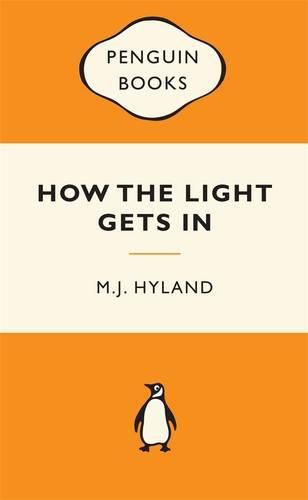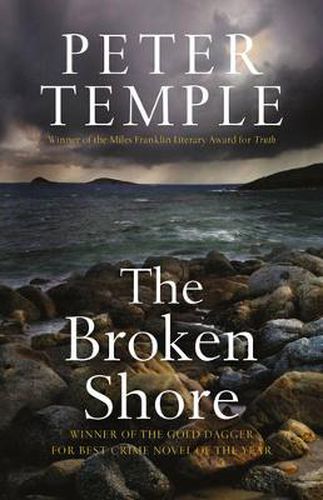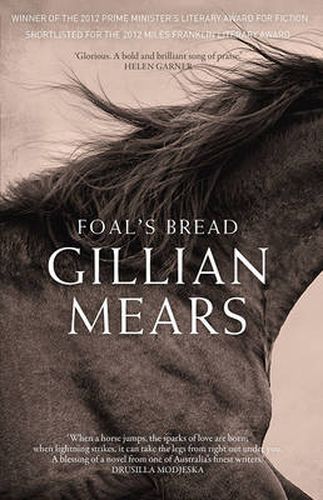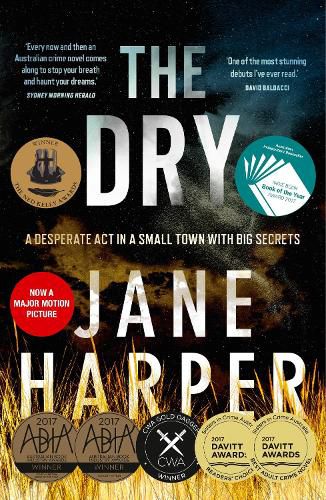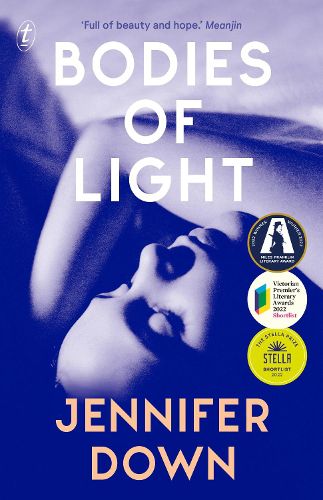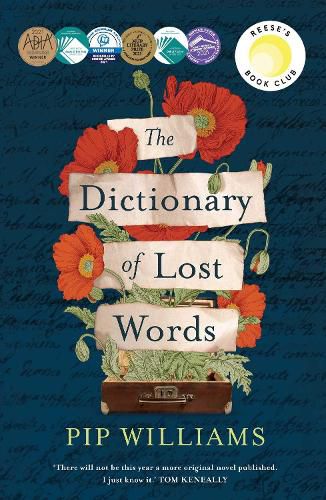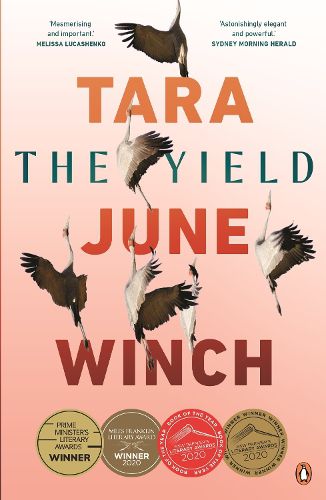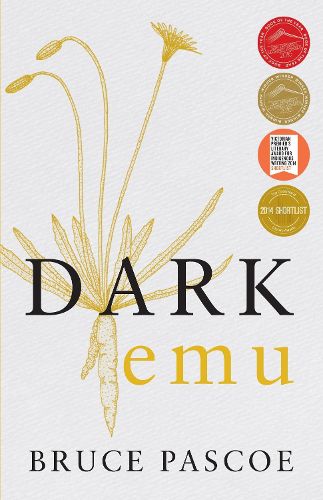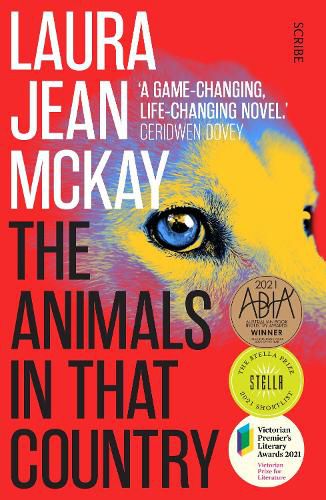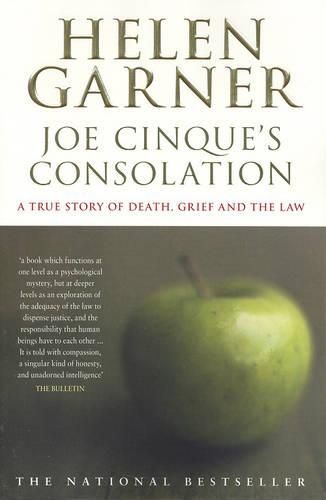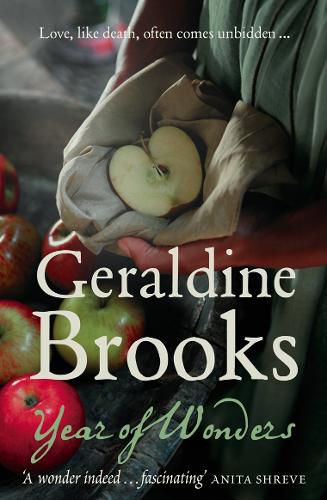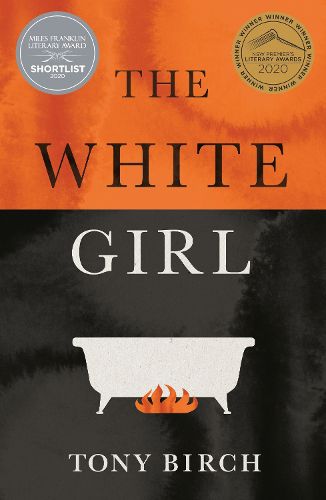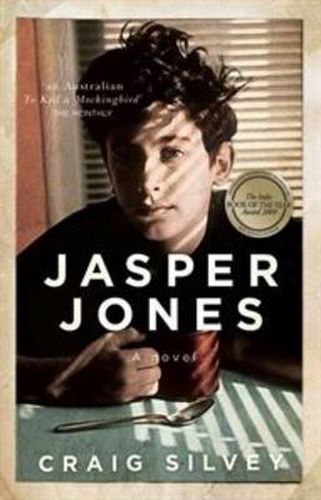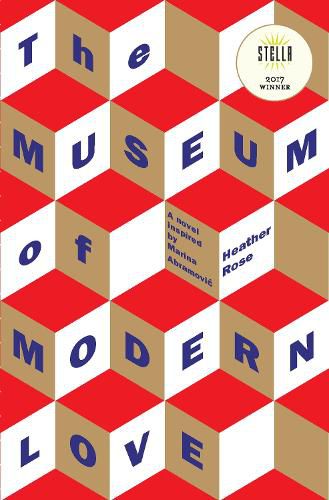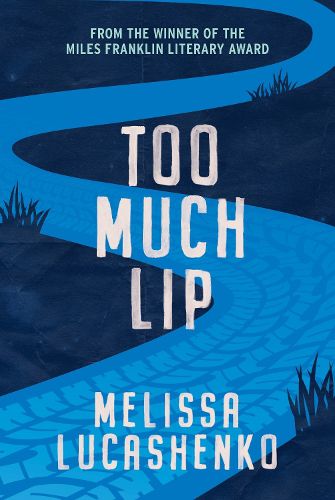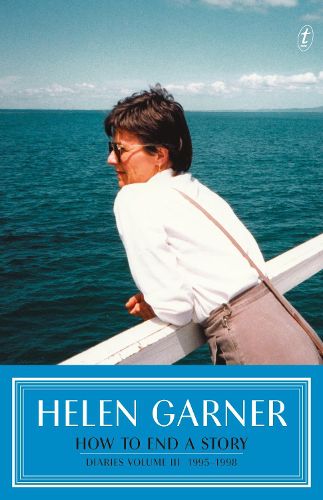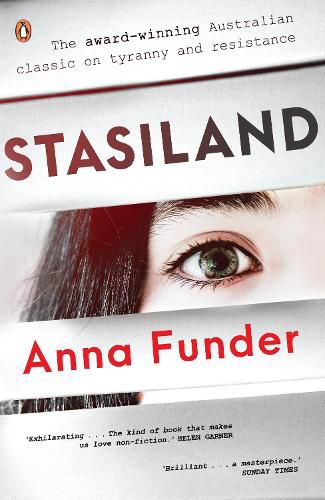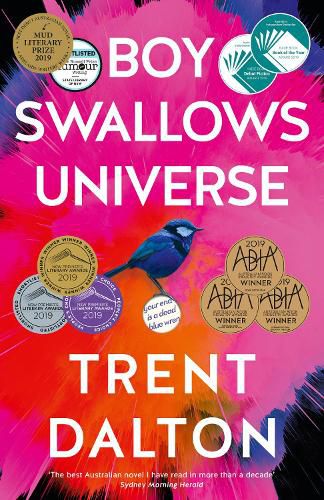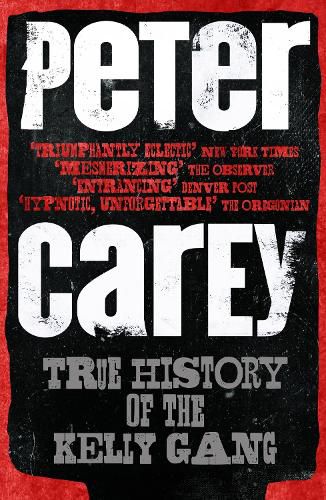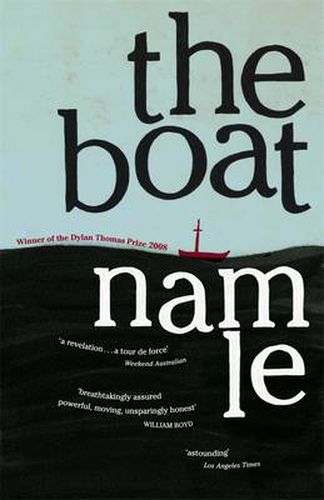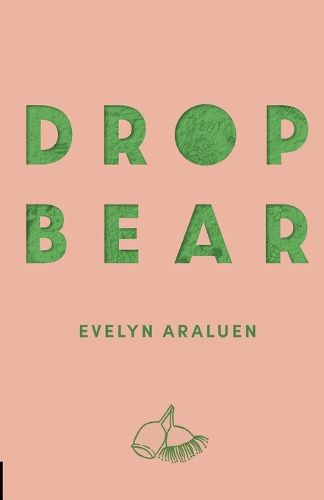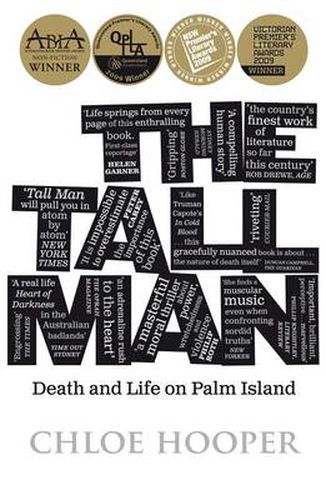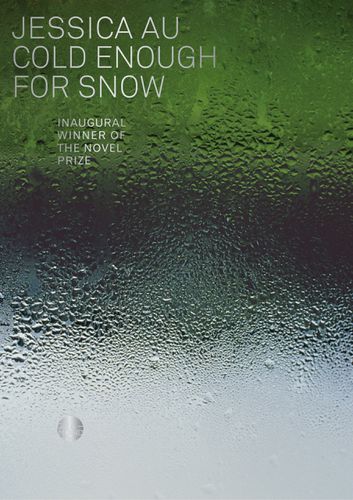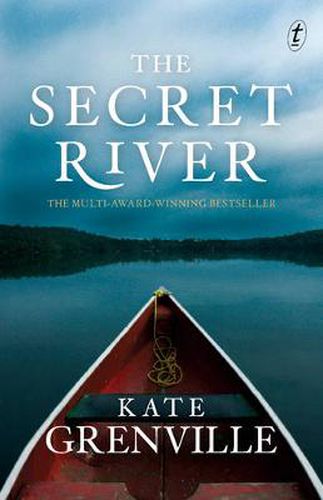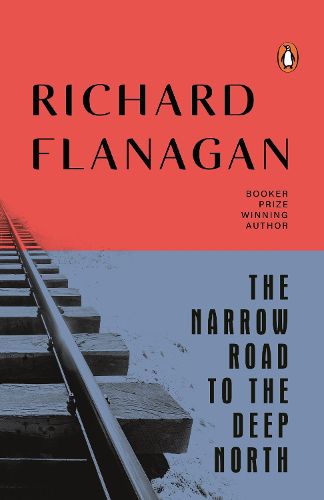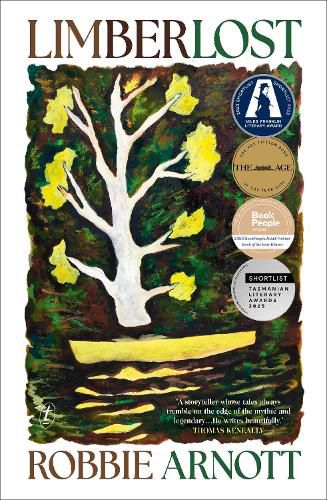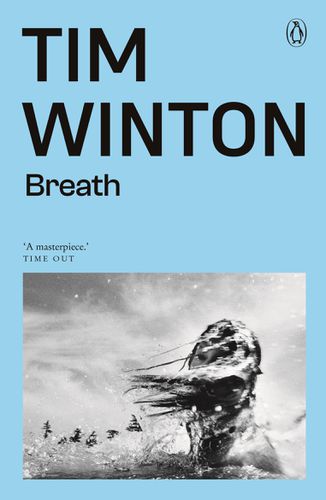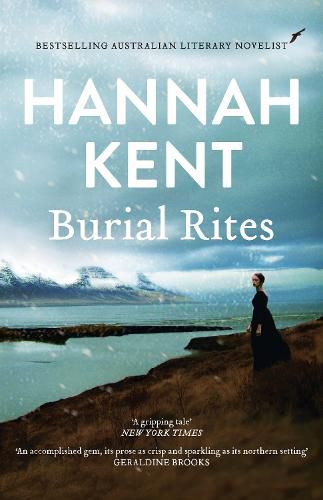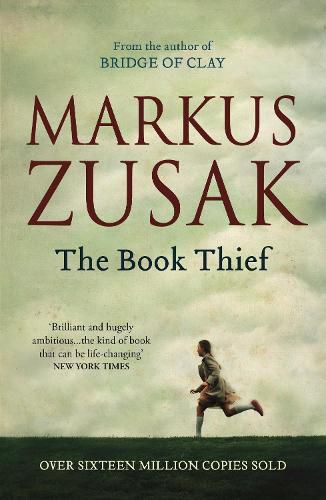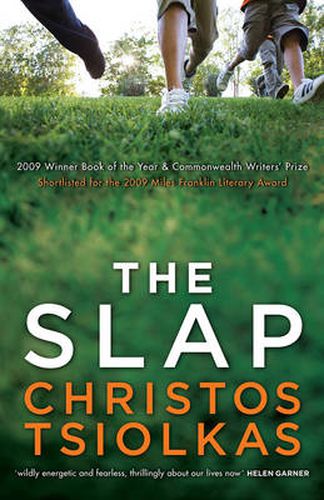The literary world has been buzzing with conversations about The New York Times’ recently announced 100 Best Books of the 21st Century. As fierce advocates for Australian literature we were disappointed not to see any of our own remarkable writers on the list . . . and as fierce advocates for Australian literature we’ve decided to do something about it.
We reached out to members of the Australian literary community, from writers to publishers and our own passionate booksellers, asking them to nominate their favourite Australian books, published since 2000. From over 600 votes, the result is this list of the 30 best Australian books of the 21st century. We hope it will encourage you to pick up a local book that you haven't read yet, or to shout out your own favourite – we're excited to see the community's response to these rankings!
– Joe Rubbo
#30
How the Light Gets In by M.J. Hyland
'Hyland has an exceptional gift; a way of involving the reader in the lives of her protagonists. In this case I had the compulsion to jump through the page to support the book's lead character, Lou Connor, from making the detrimental decisions that teenagers often make. How the Light Gets In is an uncomfortable, heartbreaking and sometimes funny novel that more than deserves its status as one of Australia’s best books of the 21st Century.'
– Jason Austin, bookseller
#29
The Broken Shore by Peter Temple
Peter Temple’s gift for compelling plots and evocative, compassionately drawn characters has earnt him a reputation as the grand master of Australian crime writing. The Broken Shore is Temple’s finest book yet; a novel about a place, about family, about politics and power, and the need to live decently in a world where so much is rotten. It is a work as moving as it is gripping, and one that defies the boundaries of genre.
#28
Foal's Bread by Gillian Mears
Written in luminous prose and with an aching affinity for the landscape the book describes, Foal’s Bread is the work of a born writer at the height of her considerable powers. It is a stunning work of remarkable originality and power, one that confirms Gillian Mears’ reputation as one of our most exciting and acclaimed writers.
#27
The Dry by Jane Harper
Luke Hadler turns a gun on his wife and child, then himself. The farming community of Kiewarra is facing life and death choices daily. If one of their own broke under the strain, well . . .
When Federal Police investigator Aaron Falk returns to Kiewarra for the funerals, he is loath to confront the people who rejected him twenty years earlier. But when his investigative skills are called on, the facts of the Hadler case start to make him doubt this murder-suicide charge.
#26
Bodies of Light by Jennifer Down
A quiet, small-town existence. An unexpected Facebook message, jolting her back to the past. A history she’s reluctant to revisit – dark memories and unspoken trauma, warning knocks on bedroom walls, unfathomable loss. She became a new person a long time ago. What happens when buried stories are dragged into the light?
'Bodies of Light, to me, is unlike any other Australian book I have read. Gritty and depressing, but told with such care, research and beautiful writing.'
– Clare, publisher
#25
The Dictionary of Lost Words by Pip Williams
Esme is born into a world of words. Motherless and irrepressibly curious, she spends her childhood in the ‘Scriptorium’, a garden shed in Oxford where her father and a team of dedicated lexicographers are collecting words for the very first Oxford English Dictionary.
'A powerful, moving story about connection, women's stories and language, released to monumental success during a time in which industries were struggling and storytelling was more important than ever.'
– Laura Franks, publisher
#24
The Yield by Tara June Winch
'As a bookseller, it is rare that you ever make the time to re-read a book – there are simply too many new ones to distract you, or classics that you have never read but know that you should – you can't waste those precious reading hours on something that you've done before. Unless it is a very special book, in which case you read it again, to savour anything missed the first time around and treasure the parts that stayed with you. The Yield by Tara June Winch is one of the very few books I have read twice in recent years, because it deserved savouring and treasuring. It is storytelling at it's finest.'
– Kate McIntosh, bookseller
#23
Dark Emu by Bruce Pascoe
Dark Emu puts forward an argument for a reconsideration of the hunter-gatherer tag for pre-colonial Aboriginal Australians. The evidence insists that Aboriginal people right across the continent were using domesticated plants, sowing, harvesting, irrigating, and storing – behaviours inconsistent with the hunter-gatherer tag.
'Dark Emu changed our minds as a culture about First Nations’ people’s ongoing relationship with the land and farming. It has sparked so many discussions and controversies but imagine if it hadn’t been published? Our society would be diminished without it.'
– Angela Crocombe, senior buyer for Readings Kids
#22
The Animals in That Country by Laura Jean McKay
Hard-drinking, foul-mouthed, and allergic to bullshit, Jean is not your usual grandma. As disturbing news arrives of a pandemic sweeping the country, Jean realises this is no ordinary flu: its chief symptom is that its victims begin to understand the language of animals . . .
'Original, hugely entertaining and superbly crafted, this is one heck of a road-trip novel, whose timing and insights into human behaviour in a crisis could not be more prescient.'
– Alison Huber, head book buyer for Readings
#21
Joe Cinque's Consolation by Helen Garner
In October 1997, a clever, young law student at ANU made a bizarre plan to murder her devoted boyfriend after a dinner party at their house. Compassionate but unflinching, this is a book about how and why Joe Cinque died. It probes the gap between ethics and the law; examines the helplessness of the courts in the face of what we think of as ‘evil’; and explores conscience, culpability, and the battered ideal of duty of care.
#20
Year of Wonders by Geraldine Brooks
'Geraldine Brooks won the Pulitzer Prize for her sophomore novel March, but it's Year of Wonders that I return to again and again. Set during the Great Plague of London, this brilliant historical novel fictionalises the true story of the people of Eyam, who made the decision to quarantine their village for over a year rather than risk spreading the plague to their neighbours. I most recently reread this book during the 2020 pandemic lockdowns in Victoria, and it was such a timely and vivid reminder of the power of community action and the importance of holding on to your humanity when the world is collapsing around you.'
– Lian Hingee, bookseller
'Year of Wonders was not only an insight into an historical event but an utterly gripping and wonderful read'
– Leone Hodgson, publisher
#19
The White Girl by Tony Birch
In The White Girl, Tony Birch has created memorable characters whose capacity for love and courage are a timely reminder of the endurance of the human spirit. Odette Brown has lived her whole life on the fringes of a small country town. Raising her granddaughter Sissy on her own, Odette has managed to stay under the radar of the welfare authorities who are removing Aboriginal children from their communities. When the menacing Sergeant Lowe arrives in town, determined to fully enforce the law, any freedom that Odette and Sissy enjoy comes under grave threat.
#18
Jasper Jones by Craig Silvey
Late on a hot summer night in 1965, Charlie Bucktin, a precocious and bookish boy of 13, is startled by an urgent knock on the window of his sleep-out. His visitor is Jasper Jones, an outcast in the regional mining town of Corrigan.
Rebellious, mixed-race and solitary, Jasper is a distant figure of danger and intrigue for Charlie. So when Jasper begs for his help, Charlie eagerly steals into the night by his side, terribly afraid but desperate to impress. Jasper takes him through town and to his secret glade in the bush, and it’s here that Charlie bears witness to Jasper’s horrible discovery.
#17
The Museum of Modern Love by Heather Rose
'All these books come back to me in some way, but it's Heather Rose's The Museum of Modern Love that still evokes images and lines of writing to come into my mind – even though I read it in 2017. Weaving two central narratives, that of the performance artist Marina Abramovic alongside her piece 'The Artist is Present', which went for 75 days in the summer of 2010 and a fictional attendee, Arky Levin whose life is at a difficult crossroads. Art and love are central to this work, with smaller stories of other attendees interspersed throughout. I think it is the character Jane who best sums up this work and it's impact upon me: 'I think art saves people all the time . . . I know art has saved me on several occasions'
– Carolyn Watson, bookseller
#16
Too Much Lip by Melissa Lucashenko
Too much lip, her old problem from way back. And the older she got, the harder it seemed to get to swallow her opinions. The avalanche of bullshit in the world would drown her if she let it; the least she could do was raise her voice in anger.
Wise-cracking Kerry Salter has spent a lifetime avoiding two things - her hometown and prison. But now her Pop is dying and she's an inch away from the lockup, so she heads south on a stolen Harley.
Gritty and darkly hilarious, Too Much Lip offers redemption and forgiveness where none seems possible.
#15
How to End a Story: Diaries 1995-1998 by Helen Garner
Helen Garner’s third volume of diaries is an account of a woman fighting to hold on to a marriage that is disintegrating around her. This is a harrowing story, a portrait of the messy, painful, dark side of love lost, of betrayal and sadness and the sheer force of a woman’s anger. But it is also a story of resilience and strength, strewn with sharp insight, moments of joy and hope, the immutable ties of motherhood and the regenerative power of a room of one’s own.
#14
Stasiland by Anna Funder
'Stasiland changed the Australian literary landscape forever. The book is both personal and political, tracing how the surveillance state corrupted even the most intimate relationships between people in the former East Germany. It's a powerful reminder that Australian authors don't have to stick to only Australian themes and histories – that with Funder-esque brilliance and moral courage, we can develop unique perspectives on the rest of the world.'
– Ceridwen Dovey, author
#13
Boy Swallows Universe by Trent Dalton
A story of brotherhood, true love and the most unlikely of friendships, Boy Swallows Universe will be the most heartbreaking, joyous and exhilarating novel you will read all year – an instant Australian classic.
Brisbane, 1983: A lost father, a mute brother, a mum in jail, a heroin dealer for a stepfather and a notorious crim for a babysitter. It’s not as if Eli’s life isn’t complicated enough already. He’s just trying to follow his heart, learning what it takes to be a good man, but life just keeps throwing obstacles in the way – not least of which is Tytus Broz, legendary Brisbane drug dealer.
#12
True History of the Kelly Gang by Peter Carey
'A lyrical, wild and brutal novel, Carey leans on the often unreliable history of the Kelly outbreak. The narrative breathes life into a dubious icon with an unforgettable and fresh voice for a well-trodden subject. Carey’s work captures the social divisions and landscape that make north east Victoria ‘Kelly Country’.'
– Leilani Mason, publisher
#11
The Boat by Nam Le
In 1979, Nam Le’s family left Vietnam for Australia, an experience that inspires the first and last stories in The Boat. In between, however, Le’s imagination lays claim to the world.
The Boat takes us from a tourist in Tehran to a teenage hitman in Colombia; from the city of Hiroshima just before the bomb is dropped to the haunting waste of the South China Sea in the wake of another war. Each story is as absorbing and fully realised as a novel. Together, they make up a collection of astonishing diversity and achievement.
#10
Dropbear by Evelyn Araluen
This fierce debut from award-winning writer Evelyn Araluen confronts the tropes and iconography of an unreconciled nation with biting satire and lyrical fury. This innovative mix of poetry and essay offers an eloquent witness to the entangled present, an uncompromising provocation of history, and an embattled but redemptive hope for a decolonial future.
#9
The Tall Man: Death and Life on Palm Island by Chloe Hooper
The Tall Man is the story of Palm Island, the tropical paradise where one morning Cameron Doomadgee swore at a policeman and forty minutes later lay dead in a watch-house cell.
It is the story of that policeman, the tall, enigmatic Christopher Hurley, who chose to work in some of the toughest and wildest places in Australia, and of the struggle to bring him to trial.
Above all, it is a story in luminous detail of two worlds clashing – and a haunting moral puzzle that no reader will forget.
#8
Cold Enough for Snow by Jessica Au
A novel about the relationship between life and art, and between language and the inner world – how difficult it is to speak truly, to know and be known by another, and how much power and friction lies in the unsaid.
Cold Enough for Snow is a reckoning and an elegy: with extraordinary skill, Au creates an enveloping atmosphere that expresses both the tenderness between mother and daughter, and the distance between them.
#7
The Secret River by Kate Grenville
After a childhood of poverty and petty crime in the slums of London, William Thornhill is transported to New South Wales for the term of his natural life. With his wife Sal and children in tow, he arrives in a harsh land that feels at first like a death sentence. But among the convicts there is a whisper that freedom can be bought, an opportunity to start afresh. As Thornhill stakes his claim on a patch of ground by the Hawkesbury River, the battle lines between the old and new inhabitants are drawn.
'In this elegant and profound novel, Grenville lays bare the complexities and contradictions of colonization.'
– Mark Rubbo, Readings Chairman
#6
The Narrow Road to the Deep North by Richard Flanagan
This savagely beautiful novel is a story about the many forms of love and death, of war and truth.
August, 1943. In the despair of a POW camp on the Thai-Burma death railway, Australian surgeon Dorrigo Evans struggles to save the men under his command from starvation, from cholera, from beatings. Through it all, he's haunted by his old love affair with his uncle's young wife.
'The Narrow Road to the Deep North is a deeply personal, moving and harrowing account of a time in history that we should never forget. Written by a masterful storyteller.'
– Kate Hoy, publisher
#5
Limberlost by Robbie Arnott
In the heat of a long summer Ned hunts rabbits in a river valley, hoping the pelts will earn him enough money to buy a small boat.
His two brothers are away at war, his father and older sister struggle to hold things together on the family orchard, Limberlost. Desperate to ignore it all – to avoid the future rushing towards him – Ned dreams of open water.
'Limberlost for me is a near-perfect book. It's a realist story of a boy growing up the hard way in rural Australia but it also resonates with an almost mystical observation of and connection to nature, and there are many finely nuanced and subtly revealing scenes. And the structure is so clever. The end took my breath away.'
– Jane Sullivan, author
#4
Breath by Tim Winton
When paramedic Bruce Pike is called out to deal with another teenage adventure gone wrong, he knows better than his colleague, better than the kid’s parents, what happened and how. Thirty years before, that dead boy could have been him.
'Breath is my favourite Winton novel and the perfect distillation of everything he does well – coming of age, surfing, relationships and really sharp, beautiful writing. I found this novel immensely satisfying and have read it a number of times since it was published.'
– Joe Rubbo, Readings Managing Director
#3
Burial Rites by Hannah Kent
In northern Iceland, 1829, authorities condemn Agnes Magnusdottir to death for her part in the brutal murder of two men.
Based on a true story, Burial Rites is a profoundly moving novel about the ultimate price of freedom and the risks we take for love.
'Burial Rites is so incredibly evocative of a place, a landscape and a time. One can visualise the cramped interiors as much as the wild weather and countryside. A totally compelling and very haunting story that stays with you. Beautiful writing, a very accomplished piece that you get lost in as a reader.'
– Kirstie Armiger-Grant, publicist
#2
The Book Thief by Markus Zusak
It is 1939, Nazi Germany. By her brother’s graveside, Liesel’s life is changed when she picks up a single object, partially hidden in the snow. It is The Gravedigger’s Handbook, left there by accident, and it is her first act of book thievery.
This is a story about the power of words to make worlds. In superbly crafted writing that burns with intensity, award-winning author Markus Zusak has given us one of the most enduring stories of our time.
'The Book Thief is a wonderful book with such a haunting narrative. It's one that's stayed with me some twenty years since its publication.'
– Julia Jackson, bookseller
'This is a near perfect novel, that captures the heart of the characters against the horrific backdrop of war, showing us the best of humanity – and written in absolutely beautiful prose.'
– Kylie, publisher
#1
The Slap by Christos Tsiolkas
At a suburban barbecue, a man slaps a child who is not his own. This event has a shocking ricochet effect on a group of people who are directly or indirectly influenced by the event. In this remarkable novel, Christos Tsiolkas turns his unflinching and all-seeing eye onto that which connects us all: the modern family and domestic life in the twenty-first century. What unfolds is a powerful, haunting novel about love, sex and marriage, parenting and children, and the fury and intensity – all the passions and conflicting beliefs – that family can arouse.
'The Slap is a portrait of Melbourne life that remains unique in its honesty and pathos.'
– Chris Gordon, bookseller


